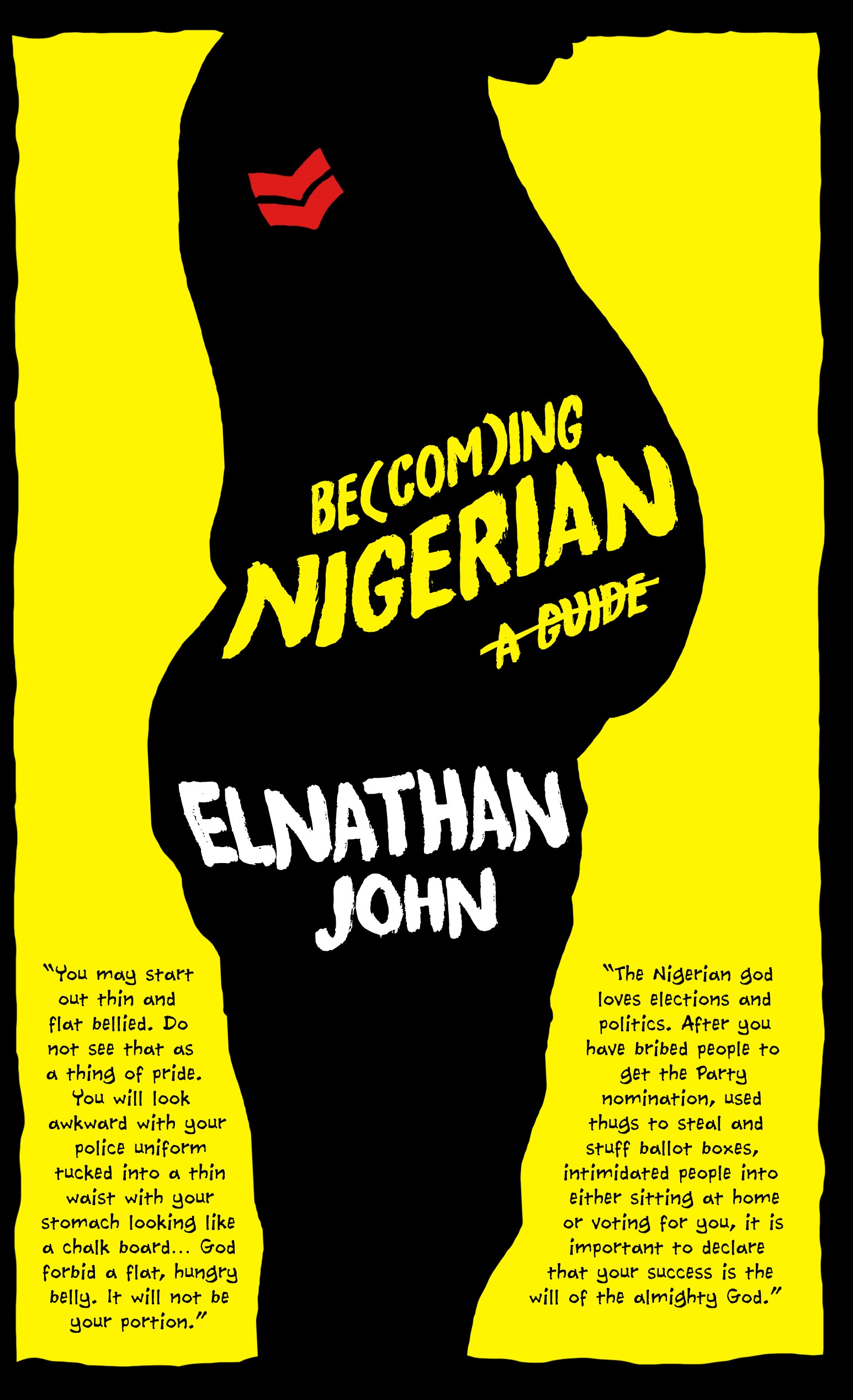Features
BN Book Review: Be(com)ing Nigerian: A Guide by Elnathan John
In the just over 100 pages of Be(com)ing Nigerian: A Guide, Elnathan dedicates a few to writers like himself; to journalists covering Nigerian news daily, including the Boko Haram insurgency; to middle class Nigerians and their stamped passports; and to, perhaps my favorite, Nigerian first ladies and their regal deportment.
 “Nigeria is in some sort of post-shame dystopia, where it is quite difficult to shame politicians and groups in power,” author, satirist and “recovering lawyer” Elnathan John said in an interview with CNN.
“Nigeria is in some sort of post-shame dystopia, where it is quite difficult to shame politicians and groups in power,” author, satirist and “recovering lawyer” Elnathan John said in an interview with CNN.
The truth might be even deeper.
There’s a drapery of ignorance that exists in the Nigerian culture that might as well be the root of the absence of shame. And it’s an ignorance so pure, it allows for absolution.
See this photo, shared on Twitter, of a Nigerian police officer saved from abduction by members of a local vigilante group. The police officer embraces his savior in a manner so tender it calls for the staple Nigerian reaction of mild homophobia (as seen in the replies).
A Nigerian Police Officer in a warm embrace with a member of a local vigilante group, after being rescued from Kidnappers’ den by OSPAC.
OSPAC is a local vigilante group in Ogba/Egbema/Ndoni Local Government Area of Rivers State.#PHCitt#alpha1rides pic.twitter.com/Hw55RbTzur
— Port-Harcourt People (@AskPHPeople) March 18, 2019
Of course, reactions to the photo feature a genuine appreciation of the vigilante; and, as is to be expected, a few “thank God”s. Very few recognized the ridiculousness of the situation: The roles reversed; a civilian taking on the role of his protector, and his protector surrendering responsibility.
Another case to consider: the story of Success, a girl who was sent out of school for owing fees. After a video of her went viral, after people all over had donated to see her education sorted, whoever it was who brought her story to social media shared a video complaining her family did compensate her. And what did the replies to the video say? That she wasn’t asking for too much. It really is an ignorance that begins at the root, an ignorance so pure it defies satire.
Maybe it makes sense then that Elnathan has said over and over again that it’s difficult to write satire in Nigeria. “The news itself favorably competes with even the best of satire,” he said. Daily living in our country defeats imagination.
But in Elnathan John’s second book Be(com)ing Nigerian: A Guide, published by Cassava Republic, he has successfully satirized the Nigerian life. Take, for instance, the first chapter “How To Worship The Nigerian God.” Elnathan writes that the Nigerian God knows no religion. Nigerians serve him in different ways, but he’s essentially the same being. Made in their image. He allows for sins like corruption, just ensure that before that is discussed in a meeting, you begin with an opening prayer. And if your opening prayer is made to the Christian God, the closing prayer must be to Allah. Cover all bases.
Passages like that remind you of when you worked in a company where opening prayer was mandatory. Afterward, the senior partner would call a female employee into his office then harass her. It’s known, never challenged.
There’s also how to be a Nigerian pastor, which highlights Nigerians and their subservience to power. The pastor asks not be questioned and the Nigerian says yes, sir (or ma, in very few cases). The Nigerian pastor explains why you need to pay your tithe, and why it doesn’t matter if he lives in affluence off it, despite your own poverty. And what do you do? You say it doesn’t matter what he uses your 10% for. After all, you’re doing it for God, not for man.
But it’s not only the easy targets Elnathan comes for. In the just over 100 pages of Be(com)ing Nigerian: A Guide, Elnathan dedicates a few to writers like himself; to journalists covering Nigerian news daily, including the Boko Haram insurgency; to middle class Nigerians and their stamped passports; and to, perhaps my favorite, Nigerian first ladies and their regal deportment.
The Nigerian life may be difficult to satirize. But Elnathan may have found just the way to pull it off: by stating it as it is.



















